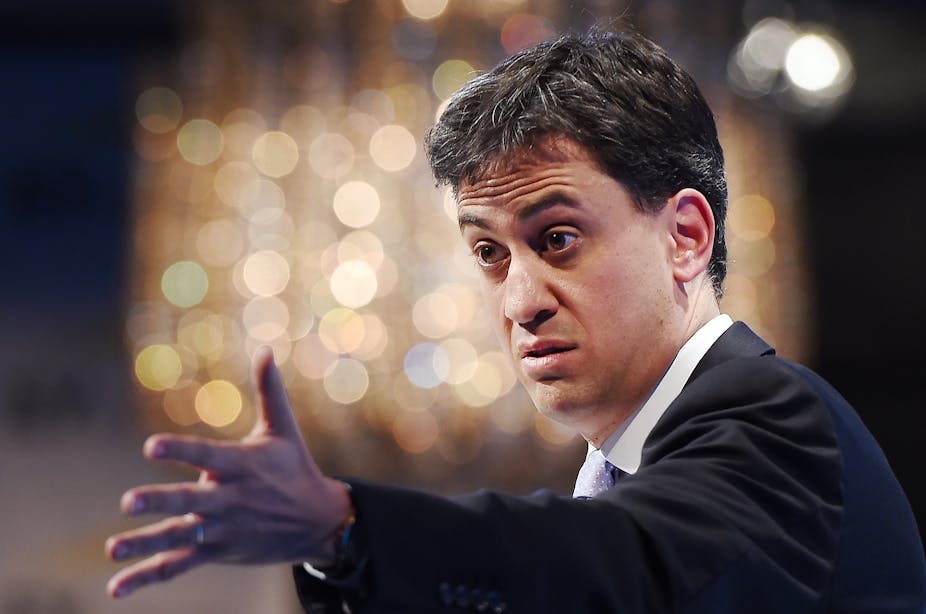If we’ve learned anything from Labour backbenchers over the past four-and-a-half years it’s that being in opposition can seriously damage your cognitive abilities. At least, that appears to be the only plausible explanation for the behaviour they’ve displayed in the past ten days.
There is no doubt that the leadership-challenge-that-never-was has seriously undermined the authority of Ed Miliband but it also has raised questions about the credibility of the party as a whole. It is now being whispered around Westminster that Labour is so unprepared for government, it can’t even plot a leadership coup.
This one was so badly planned that the plotters involved didn’t even have a candidate to replace the existing leader. They were piling all their hopes on Alan Johnson – a man who has repeatedly said he is not interested in frontline politics and even less in a post that requires the unpleasant weekly exercise of Prime Minister’s Questions. Worse than this, the plotters didn’t seem to have a coherent electoral strategy either.
To be fair, the anonymous plotters come from two different groupings of the right of the party, which made it difficult for them to reach a consensus on any plan beyond getting rid of Miliband. Among them were a gaggle of small-c conservatives who want Labour to propose tough policies on immigration and a referendum on EU membership. The others were the über-Blairites, who support immigration and Europe but who would like Miliband to ditch what they perceive to be anti-business policies on the minimum wage, energy companies, taxes on banker bonuses and their mansions.
Living in the past
This episode proves that many MPs on Labour’s right have not yet digested the fact that David Miliband is not their leader. Leaving aside hypothetical considerations over who would make a better party leader (and it is not clear that David Miliband possesses the important personable qualities that his brother seems to lack), it seems these backbenchers have only just woken up to the fact that the British political landscape has dramatically changed since 1997. And they still haven’t understood what those changes mean.
They do not seem to understand why Labour was so heavily defeated in 2010 (and why the Labour Party lost five million supporters between 1997 and 2010). For one thing, New Labour’s triangulation strategy, which saw it adopting distinctly right-wing policies, was admired by the City of London, industry and most of the Westminster media but actually served to alienate many voters.
And more importantly, the global financial crisis also showed that Labour needed to rethink its embrace of neoliberalism. Third way economics facilitated the credit crunch of 2007, the financial crisis of 2008 and the debt crisis of 2009. As the former chair of the Federal Reserve Alan Greenspan said after the collapse of Lehman Brothers, the whole intellectual edifice that had sustained the turbo-capitalism of the 1990s had collapsed. Some serious rebuilding is still urgently required. But many of the plotters seem oblivious. It’s business as usual for them.
It’s not all about you
As well as lacking self-awareness in this respect, Labour backbenchers have failed to face up to the realities of alive-and-kicking multi-party politics. A centre-left party like theirs has to deal with multiple and contradictory electoral challenges. And these challenges are far more difficult for Labour than for the Conservatives. They have to respond to the UKIP insurgency on one side, the rise of the Greens on the other, not to mention the Scottish National Party. They have to work out what to do about disillusioned Liberal Democrat voters at the same time, as well as keeping up with the high volatility of floating voters.
Developing an electoral strategy that addresses all these challenges without electoral costs is impossible. Targeting UKIP sympathisers with tough policies on immigration, as some of Miliband’s critics have suggested, risks alienating centre-left and soft-left voters. Labour needs their support but they might instead vote for the Greens or the SNP. Ditching the modest rise of the minimum wage, the freeze on energy prices or the tax on banker bonuses on the other hand might deprive the party of the few policies that are actually popular with voters.
If any Labour backbencher has doubts about how serious these challenges are, he or she should take a look at what is going in Europe, where other social democratic parties are in disarray. In France, the Socialist Party is being squeezed between Marine Le Pen’s National Front and the Left Front. In Germany, the SPD is challenged by the Greens and the Left Party. In Spain, the Socialists have had to concede their position as the main opposition party to the recently created radical left party Podemos and may have to wait several years until Spanish voters will give them another chance. In Greece, PASOK is being pulverised by the radical left movement, Syriza.
Allowing for some national variations, the state of social democracy across Europe is rather dismal. If Labour MPs want to avoid the fate of their European counterparts they should save their doubts about Miliband for Sunday confession and wait until after May 7 to plot about leaders in public.

